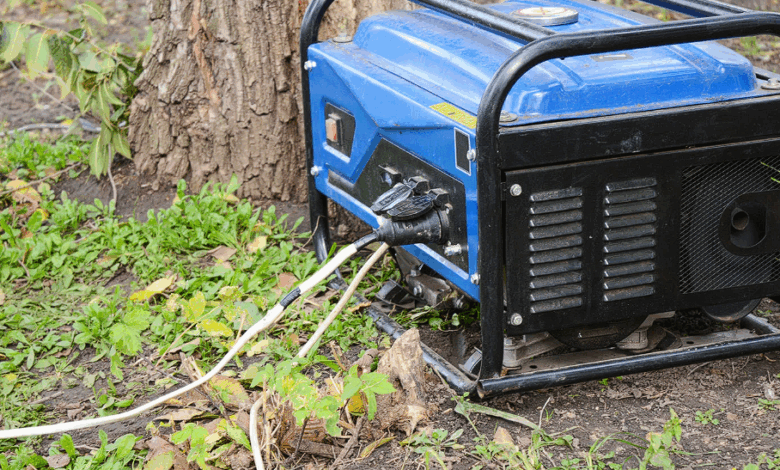How Much Gas Does a Generator Use? Fuel Usage, Costs & Key Facts

With more frequent and intense natural disasters driven by climate change, power outages have become a growing concern. In the U.S. alone, the average number of major natural events each year has climbed to 17.5 in the past five years. This has led to longer outages, with Americans experiencing around 8 hours without power in 2020—double the duration from 2013.
To combat unexpected blackouts, more people are turning to portable and standby generators. But one common question remains: How much fuel do generators use?
How Much Fuel Does a Generator Consume?
Fuel consumption depends on several key factors: the type of generator, power output, fuel type, and load. For example:
- A standard 2000-watt gasoline generator uses about 0.75 gallons of gas per hour at full load.
- Portable generators use less fuel in “eco mode,” especially inverter models, which are designed for efficiency.
Fuel Types and Their Consumption Rates
🟦 Gasoline
- A 5KW portable gasoline generator typically uses 0.75 to 0.8 gallons per hour.
- 5000-watt conventional models can consume up to 18 gallons per day.
- Inverter generators burn significantly less due to efficient design.
- Pros: Easy to find, affordable.
- Cons: Moderate CO2 emissions, higher volatility, less stable in storage.
🟨 Propane
- A 5 to 6KW propane generator uses around 1.4 to 1.5 gallons per hour at 70-95% load.
- Propane is clean-burning, low-maintenance, and doesn’t degrade like gasoline.
- A 500-gallon propane tank can power a home for up to a week.
- Pros: Long shelf life, low emissions, cleaner than gasoline and diesel.
- Cons: Lower energy density than diesel.
🟥 Diesel
- An 8KW diesel generator uses around 0.5 to 0.6 gallons per hour at moderate load.
- Diesel fuel has a high energy output (38MJ/L) and generators using it tend to last longer.
- Pros: High efficiency, fewer refuels needed.
- Cons: Dirty emissions, not ideal for the environment.
🟩 Natural Gas
- A 7KW natural gas generator consumes around 115 to 118 cubic feet per hour.
- If your home has a direct gas line, this is a cost-effective and reliable option.
- Pros: Continuous supply via pipelines, cleaner than other fossil fuels.
- Cons: Still emits carbon, though at lower levels.
Types of Generators and Their Fuel Efficiency
✅ Inverter Generators
- Compact and fuel-efficient.
- Ideal for sensitive electronics (stable power output).
- Lowest fuel consumption among portable models.
✅ Conventional Portable Generators
- Can produce higher wattage (up to 15,000 watts).
- Tend to be noisier and consume more fuel.
- Best for job sites and emergency backup.
✅ Standby Generators
- Permanently installed.
- Turn on automatically during outages.
- Range from 8,000 to 20,000 watts.
- Consume more fuel, but provide seamless backup for an entire home.
Estimated Fuel Consumption by Type (Per Hour)
| Generator Output | Fuel Type | Approx. Usage per Hour |
| 5KW | Gasoline | 0.75 – 0.8 gallons |
| 7KW | Natural Gas | 115 – 118 cubic feet |
| 8KW | Diesel | 0.5 – 0.6 gallons |
| 5–6KW | Propane | 1.4 – 1.5 gallons |
Generator Fuel Cost Comparison
Let’s take a look at what it costs to run different types of generators per hour based on current average fuel prices:
| Generator Type | Fuel Usage/Hour | Fuel Price | Estimated Hourly Cost |
| 8KW Diesel | 0.5 – 0.6 gallons | $5.645 | ~$2.82 |
| 5KW Gasoline | 0.75 – 0.8 gallons | $5.04 | ~$3.78 |
| 7KW Natural Gas | 115 – 118 cu. ft. | $0.0132/cu ft | ~$1.52 |
| 5–6KW Propane | 1.5 gallons | $3.00 | ~$4.50 |
What Affects Generator Fuel Consumption?
🔸 Generator Type
- Standby units burn more fuel due to high power output.
- Conventional portables consume more than inverters, which are best for fuel economy.
🔸 Fuel Efficiency
- Fuels like diesel and propane provide higher energy output per unit compared to gasoline.
- Natural gas offers the lowest hourly cost if available via pipeline.
🔸 Load Level
- The higher the load on the generator, the more fuel it burns.
- Running at 70-90% load is more efficient than running full throttle constantly.
Understanding how much gas or fuel your generator uses is essential for budgeting and preparedness. Here are the key takeaways:
- Inverter generators offer the best efficiency and are ideal for camping, tailgating, or home essentials.
- Standby generators provide full-home coverage but consume more fuel.
- Propane and natural gas are cleaner and often more cost-effective.
- Always factor in fuel type, generator size, and runtime needs before purchasing.
By choosing the right generator and fuel type for your specific needs, you can ensure reliable backup power without breaking the bank or harming the environment more than necessary.




![How to Bypass CO Sensor on Generator – [4-Step Safety Guide]](https://www.generator411.com/wp-content/uploads/2025/08/co-sensor-on-generator-390x220.png)